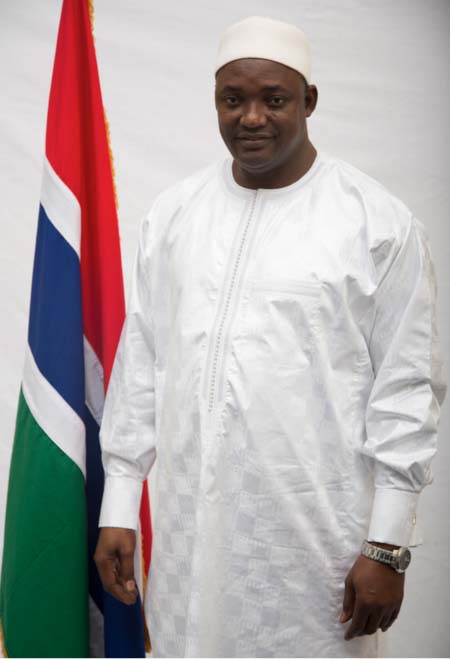
In the dispatch published below, the government reaffirmed its commitment to prudent economic management and transparent governance, indicating that it has intensified its efforts to improve public financial management.
“The Government of The Gambia has taken note of the editorial published by The Point newspaper on June 16, 2025, titled “Good Morning Mr President: Tackle the Dire Straits of the Economy.” The editorial, while expressing legitimate public concern, presents a portrayal of the current economic situation that does not align with available macroeconomic data and the most recent assessments by competent national institutions. This press release serves to set the record straight and reaffirm the Government’s commitment to prudent economic management and transparent governance.
The Dalasi Remains Stable
Claims of a collapsing Dalasi are inconsistent with the current performance of the foreign exchange market. From January to March 2025, the Dalasi depreciated only marginally—1.7% against the U.S. dollar, 0.2% against the British Pound, and 0.5% against the CFA Franc—while appreciating by 1.2% against the Euro. These movements reflect typical market adjustments and not a systemic currency crisis. The foreign exchange market remains liquid and stable, with transaction volumes rising to US$670.1 million in the first quarter of 2025, up from US$600.9 million a year prior. Private remittance inflows continue to be strong, reaching US$207.9 million in the first quarter (Q1) of 2025.
Improved Fiscal Management and Expenditure Control
The Government has intensified its efforts to improve public financial management, cut non-priority spending, and enhance revenue generation. As a result, the fiscal deficit (excluding grants) narrowed to 1.6% of GDP in Q1 of 2025, a significant improvement from 2.6% in the same period last year. Revenue and grants increased by 14.5% year-on-year, while expenditure growth was kept at a minimum. The domestic debt stock declined slightly to D45.6 billion, signaling the Government’s resolve to curb excessive borrowing and maintain debt sustainability.
Strengthening Foreign Exchange Reserves
The Gambia’s external buffers have improved significantly. Gross international reserves stood at US$508.54 million at the end of May 2025—sufficient to cover more than 4.6 months of prospective imports. This level of reserve adequacy is above regional benchmarks and demonstrates the Government’s continued focus on preserving macroeconomic stability.
Inflation is Moderating
Headline inflation fell to 8.1% in April 2025—the lowest level since early 2023—thanks to increased domestic food supply, lower import prices, and the sustained impact of tight monetary policy. Food inflation stood at 8.8%, while non-food inflation eased to 7.4%. The Central Bank’s Monetary Policy Committee has retained the policy rate at 17% to maintain price stability and ensure confidence in the financial system.
Economic Growth and Structural Reforms
Despite global economic headwinds, the Gambian economy continues to demonstrate resilience. Real GDP grew by 5.3% in 2024, and is projected to grow by 6.5% in 2025. This expansion is being driven by the services sector, public infrastructure projects, financial services, and tourism. Government has also launched reforms to boost production in agriculture, fisheries, manufacturing and ICT, aimed at reducing reliance on imports and increasing foreign exchange earnings.
A Call for Responsible Dialogue and Media Engagement
The Government respects freedom of the press and the right of all citizens to express their views. However, constructive national dialogue must be based on facts, not speculation or sensationalism. Misinformation about the economy can weaken investor confidence and undermine public trust. The Government encourages media outlets and civil society to partner in building national resilience through informed debate and fact-based reporting. The Central Bank Monetary Policy Press Release of 12th June 2025 gave a detailed report on the most recent state of the economy, all in the state’s commitment to keep the public informed through the media.
Conclusion
The Government of The Gambia remains fully committed to sound economic governance, transparency, and reform. Measures are already being taken to rationalise government spending, including official travel, vehicle procurement, and energy consumption. Equally, targeted investments are being made to support local industries and increase export earnings.
The Gambian economy is not in crisis. It is on a path of sustained growth and transformation, led by a determined Government and supported by a resilient citizenry. We invite all Gambians to be part of this national effort.” (Source: State House)




